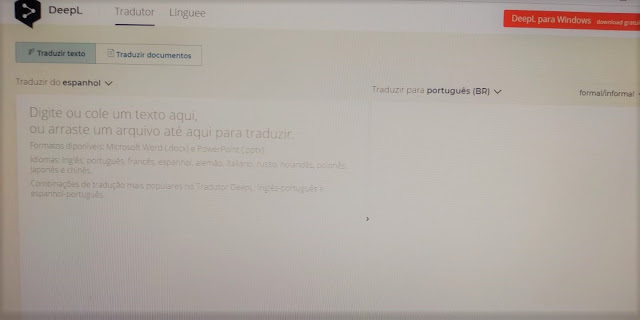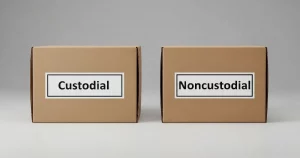Almost everything that we touch, use or simply see, even eat is directly or indirectly protected by what has come to be known as intellectual property (IP). Almost everything is now protected: the chemical formula in wall paints, the songs we listen to on the radio or mp3 players, these devices themselves, the books we read on airplanes – and the dozens of airplane parts like the engines, landing systems etc. – the medicines we take, genetically modified foods, as well as fertilizers and pesticides used in agriculture, the photograph on a postcard we send our families, the film we see at the movies as well as the screen projector and the list goes on. It’s human knowledge being made concrete.
How did this all come about? Intellectual Property rights, all put in the same basket: patents, copyrights, software, databases, location detectors etc. It’s the consolidation of intellect, thoughts or even ideas. It’s the protection of investment. There would be nothing wrong in protecting such areas of knowledge, for limited time, if it weren’t for the abuse of these rights that we’ve recently seen.
Even copyright lifespan has now been increased; they’ve already been protected for 14 years. Now, in Brazil, they’re protected during the entire life of the author and then 70 years after his death. Who is the government trying to incentive to produce culture? Not the dead author at least!
Its funny to think that never in the history of mankind have we needed incentives through concessions of legal, timed monopolies (through copyrights and patents) to have an expansion of the arts, science or culture. The great philosophers of time didn’t have their ideas protected though copyright and that didn’t keep us from having intellectual evolution. In industry, Thomas Jefferson, one of the editors of the American Constitution, ex-president of his country and the first president of the American Copyright and Patent office used to say in the beginning of the 19th century that countries that didn’t offer protection through parents were just as fruitful as countries that did. With that in mind, would patent protection really be essential? What is the balance between the two?
Recently, economists such as F. Machlup, E. Penrose, P. David e J. Stiglitz have questioned the functioning of intellectual property systems as a whole. Everything indicates that rich countries today try to impose a maximal protection towards other countries. What happens is that countries have only had the opportunity to get rich and develop because in their past, when they weren’t developed; they didn’t offer protection to creations in the arts (patents) nor to industrial innovations (patents). The World Intellectual Property Organization (WIPO) was created in 1967 to “protect” intellectual property rights. Lawyers who had companies interested in such protections founded it. A few years later, in 1974, WIPO became one of the United Nations specialized agencies, and therefore, couldn’t only “protect” intellectual property, but it had to “promote creativity and inventions” in a way to promote development, actually, that’s exactly what’s written in the American Constitution. In this way, WIPO no longer had intellectual property as a goal, but as a means of reaching development.
As most members at WIPO are developing countries, the rich nations were a minority. A great play from the last few years was to associate intellectual property to commerce, which happened after the creation of the World Trade Organization (WTO) in 1995. With growing need to join international commerce, as countries join the WTO, they automatically joining the TRIPS agreement, on intellectual property, which states the foundation and minimal requirements of IP, such as, and maybe this is the smartest thing dominating countries have done in this area, sanctions against members who don’t comply with the rules. So in case a country does not follow what’s foreseen in the TRIPS, they can be held accountable at the WTO and be subject to sanctions and economic embargos by the country detaining the intellectual property rights.
As if these rules weren’t enough, countries like the United states have been pressuring through bilateral trade agreements: it’s much easier to pressure one poor (or even rich) country at a time, than trying to impose something on many countries at once. Such strategy has been efficient: there are bilateral and regional agreements all foreseeing elevated protection articles than those founds in the TRIPS, already been signed between the US and Jordan, Australia, Singapore, Chile and Morocco amongst others. Another way of political pressure that cannot be neglected are the United States Trade Representative ´s reports, their famous “priority watch list” that lists countries on the black list, stating which nations do not have their intellectual property rights properly protected. In a recent annual report, from the end of April 2006, Brazil is once again put on maximum alert degree: maybe something to do with Brazil’s initiative at the WIPO, to balance the debate? (see below)
This maximalist policy doesn’t only affect poor countries, but rich ones as well. In the 2005, the Business Software Alliance report (BSA), that represents amongst others, Microsoft, reported that companies have suffered with the patent system, which has been used in a way to make market reserves, instead of promoting innovation. Patents are seen as pressure and threat instruments, instead of being effectively used. What’s spent on million dollars legal fights could be spent on research and development. But poor countries suffer even more, once royalties for the use of intellectual property are sent to rich countries by the millions, creating a great deficit in the commercial balance.
In the case of access to information, education, culture, medicines and knowledge in general, poor countries definitely feel the impact. Book prices, CDs and DVD are at astonishing rates, as well as patented drugs and software. At the end of the day, the abuse of private interest in contrast to public interest, the right to exclusiveness in exploration of an industrial product or intellectual creating ends up meaning not only and exclusiveness, but an exclusion of other, that are kept out without knowledge.
Today, if anyone writes anything, copyright laws automatically protect the work, since their original draft. There is no need to register it. And the rights are held at their integrity. Now I ask, protected from whom? It almost seems as if we’re a bunch of barbarians that with such thirst for culture and information, break everything and anything in our way so that intellectual creations have to be protected and kept away from us. In Brazil, if a book is out of print, hence no longer on sale, therefore the publisher is not receiving any compensation, people are still restricted from photocopying it. How does that serve the social function of property, guaranteed in our constitution? In Germany on the other hand, if a book is out of print for more that two years, that work can be photocopied as a whole. So as we see, Brazil has not implemented all the flexibilities foreseen in international agreements. Could it be pressure from the “ Priority watch list”? For example, the Creative Commons, a type of license for art works created by Professor Lawrence Lessing from the University of Stanford, represented in Brazil by the Center of Technology and Society (CTS) of Fundação Getulio Vargas’s (FGV) Law School in Rio de Janeiro, is based on copyrights, but instead of “ all rights reserved”, it’s an instrument for “ some rights reserved”, promoting the dissemination of knowledge through a greater balance between private and public interests.
Its exactly in this maximalist scope promoting more protection and less access that the Development Agenda for WIPO, an incentive by 15 developing countries, headed by Brazil and Argentina, was proposed. The Development Agenda seeks to promote the flexibilization on the debate of intellectual property in a way to bring a compromise between private and public interests.
Hoping to closely follow and participate in the debates, FGV DIREITO RIO, Center of Technology and Society – CTS have created the Free Culture Project, to monitor the UN organ specialized in intellectual property – WIPO. In this way, I have personally gone to all meeting since 2005 on behalf of FGV, who is an official credited member at WIPO. One of our other projects is Access To knowledge, or A2K, as it is known. Its main goal is to bring the debate close to the laymen public, letting them know what’s really going on. We handle extremely interesting cases that affect all out lives, such as book photocopying, the use of DRM, technology that limits or impedes the access to films, music etc. For example most virtual stores for legal downloading of music and videos use some sort of DRM system that forbids you to record digital content directly to players such as the iPod from Apple.
Its interesting to mention that although many say that personal participation in Geneva at the WIPO wont bring any benefits or possibility of change in the present political scenery, its certain that with such presence we have real knowledge of what’s going on, and more than that, we see how subjects are taken up. The growing participation of Non-governmental Organizations for public interest, as well as academia, has broadened and brought back the topics, slowly but surely to the general public – an area unknown of not so long ago. Decisions involving public interests were taken without their knowledge.
What we see at all these WIPO meeting is that in many moments, the debates are “ informal” taking place at room B, a much smaller room next to the main room: A. What does that mean? That many debates happen behind close doors, so that NGO’s can’t even listen to what’s being Said. Its curious to state that nothing that is debated informally is ever on the official report from the meeting. In other words, officially it’s like it never happened. There’s no documentation. It doesn’t go into the official history. It’s not part of the official records. There’s a slight connection to military dictatorship times
In some moments, it’s interesting, for strategic diplomatic reasons to have informal meeting. But when these informal meetings become a habit, instead of exceptions, something is probably wrong. On the sixth and most recent meeting on the Development agenda at WIPO, which took place at the end of June 2006, the air was filled with tension towards the end, including provocations from the Austrian diplomat (representing the European Union) directed towards Brazil – and the other fourteen member countries of the Friends of Development, that once again received support from India and Chile. On the Austrian side were mainly the United States, Japan, Canada, Australia, China, Russia and Kyrgyzstan.
Therefore, due to great tension and lack of transparency, there was agreement as to what should be recommended to WIPO’s General Assembly, which will take place from September 25th to the 3rd of October 2006. In other words, nothing was agreed and it will all have to be discussed at the General Assembly.
Everything leads us to believe that there will be bargaining, as other important matters will be discussed at the Assembly. The result: The future of the Development Agenda remains uncertain.








It is one of the|is amongst the|is likely considered one of the} oldest and most well-known names within the on-line gambling trade. Wild Casino's buyer assist staff is reachable via 다 파벳 우회 주소 e-mail and stay chat 24/7. We talked to completely different assist brokers, and all of them have been friendly and patiently answered our questions.